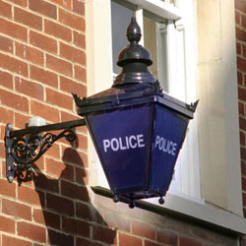Police chiefs told politicians yesterday that new powers for the Charity Commission are essential to help tackle and prevent abuse of charities.
The Parliamentary Joint Committee on the Draft Protection of Charities Bill took evidence from Peter O’Doherty, detective superintendent, head of National Fraud Intelligence Bureau at the City of London police, Terri Nicholson, detective chief superintendent at the Metropolitan Police and SO15-Counter Terrorism Command, and Donald Toon, director of economic crime command at the National Crime Agency.
All three agree that the new powers outlined in the bill are a “must have” to enable the Commission regulate more effectively, in response to a question from Nick Hurd, Conservative MP for Ruislip, Northwood and Pinner and the former minister for civil society.
O’Doherty told MPs that many of the cases that the National Fraud Intelligence Bureau sees “are related to persistent mismanagement of a charity that are not necessarily criminal”.
“With better early intervention they would not come our way,” he said.
The NFIB passes on cases to regional police forces and he said that partly because many of the issues are deemed to be mismanagement “less than 15 per cent of those cases are investigated by UK policing”.
Nicholson said that in terms of the government’s anti-terrorism strategy the new powers would “help tremendously”.
She said that the extension of powers to disqualify trustees were particularly important as sometimes complex investigations took a long time. She said that ahead of the Afghan Poverty Relief case the disqualification of the trustee came close to expiring before it came to court.
Access to banking facilities
During Wednesday’s evidence session Dr Hany El-Banna OBE, chair of Muslim Charities Forum, raised concerns about Muslim charities being denied access to banking facilities and called for the government to do something.
Toon said that the National Crime Agency is working with our colleagues in the police, government and the financial services industry on, looking for ways to provide better information to the banks.
He explained that banks “face significant problems if they are found to have given banking facilities to someone that proves to be a problem”. While the NCA doesn’t want to “drive people into illicit financial markets” he said it was “ultimately a decision for the banks”.









